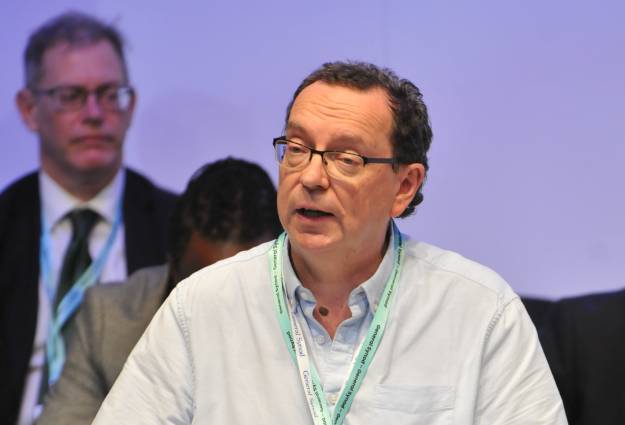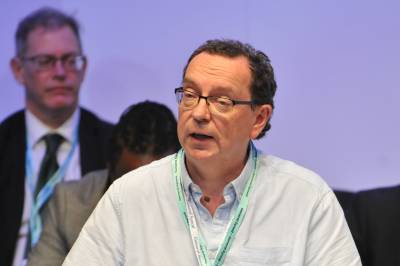04/03/2024
The Chair of the Redress Project Board reflects on the power of face-to-face dialogue and its ability to bridge gaps and aid understanding, prompted by a moving Synod event at which three survivors shared their hopes for the National Redress Scheme.
Reporting abuse and finding support
Readers may find some of the content upsetting. If you need access to support, please contact the Safe Spaces helpline by calling 0300 303 1056 or by visiting this Church of England webpage, where external support services are listed, including listening, advice, and counselling services.
By Bishop Philip Mounstephen, Chair of the Redress Project Board
Like everyone else I know, I rely heavily on tools such as Facebook, WhatsApp and email (to name just three!) for work and for keeping in touch with family and friends. But nothing replaces a good chat, face-to-face.
I was reminded of this recently on a visit to London for General Synod. As I sat on my return train home, I thought about all the conversations I’d had, the spirited debates I’d heard, and the difficult questions I’d been asked.
However, one event in particular had really struck a chord. I’d been very moved by three survivors who shared their hopes for the National Redress Scheme and all that it might mean for them. Everyone in the fringe meeting at which they spoke couldn’t fail to feel the emotion in the room. It just hit home to me how powerful it is genuinely to connect with people and to have such honest in-person conversations – conversations in which there is real warmth, as well as healthy candour.
The three survivors that spoke all contribute so much of their time and energy to developing the Scheme, along with other members of the Redress Survivor Working Group of which they’re a part. I am hugely grateful to them all, not only for their experience and insight, but their goodwill and commitment. Even though they have experienced trauma because of the Church, they continue to meet with me and others with real dedication and commitment.
Significant progress is being made
The Redress Scheme is not yet open – but we’re on track and making significant progress. When it opens it will offer eligible survivors of Church-related abuse financial awards, formal apologies, and access to crucial emotional and therapeutic support.
For the Church, it's a chance to demonstrate genuine change and for us all to show in tangible and practical ways that we are truly sorry for our past failings relating to safeguarding.
We have publicly committed to the following principles already, which I hope will be an encouragement to anyone thinking about applying:
The National Redress Scheme will:
- Be survivor-centred, ensuring people are treated respectfully. Support will be offered to those applying from start to finish.
- Treat people consistently and fairly. Banded financial awards will be applied equally across the entire Church, providing fairness and transparency to all.
- Adopt a whole-Church approach to redress. We will acknowledge our past failings, which we hope will foster a spirit of healing and reconciliation.

"Open dialogue continues to be vital in shaping the National Redress Scheme so it will be genuinely people-centred."
It takes patience and understanding from everyone
Open dialogue with survivors continues to be vital in shaping the National Redress Scheme so it will be genuinely people-centred. These conversations aren’t always easy, and inevitably they include sensitive and difficult topics. For my own part, I'm sure I don't always get things right, but I'm grateful that these conversations continue. It takes patience and understanding from everyone - especially members of the Redress Survivor Working Group.
We've made a lot of progress lately, and soon we'll announce updates on the financial awards and how the Scheme will be funded. I know survivors will rightly take a keen interest in this, but the Scheme is about more than just money, it’s about helping people rebuild their lives.
Putting people at the heart of the Scheme
So it’s vital the Church gets this right. So much depends on the decisions we're making. Those three survivors I listened to were a powerful reminder that the Redress Scheme must always put people first. It's not about policies and paperwork, but real lives. Success won't be measured in bureaucratic 21st century efficiency, but in whether those who apply see tangible improvements in their wellbeing.
If you're a survivor of Church-related abuse, please know this: wherever you are, whatever happened, however long ago, when the National Redress Scheme opens, I encourage you to apply. It's your chance to be heard and get the support you deserve.


